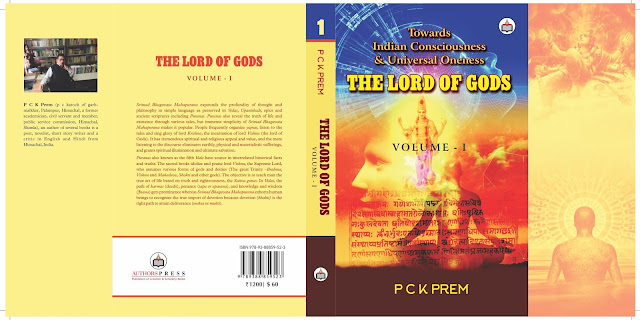Srimad Bhagavata
Mahapurana is the most important
religious book of Hindus. Through
many tales, it elucidates the depth of philosophy in simple language as
enshrined in Vedas and Upanishads and ancient scriptures
including Puranas, which are more
than fifty. It is also a fact that Puranas
also tell truth of life and existence through various tales but immense
simplicity of this holy book makes it popular and people often organize yajnas, listen to the tales, and sing
the glory of Lord Krishna, an incarnation
of Vishnu. It has tremendous
spiritual and religious value and the mere listening to the discourse
eliminates worldly, physical and materialistic sufferings, and grants spiritual
light and salvation people believe.
To catch the
consciousness, meaning and sensibility of ancient times is the objective so
that the sacred message of Srimad Bhagavata Mahapurana is clear irrespective of location, age and times. It is
an attempt to document tales and the essence of tales in contemporary
perspective. One understands the essence of bhakti
if one makes efforts to understand the complexities of karma, and to attain the objective an attempt is obvious here when
one approaches the correct path to liberation.
People believe
that Puranas (also known as the fifth
Veda) like the great epics have
source in interrelated historical facts and the holy books idolise and praise
Lord Vishnu, the Supreme, who assumes
various forms of gods and deities (The great Trinity, Shakti and other gods). The objective is to teach man the true art
of life based on truth and righteousness, the Sattva gunas. In Vedas,
the path of karmas (deeds), penance (tapa or upasana), and Knowledge and
wisdom (Jnana) gets prominence
whereas the Puranas tell human beings
to recognise the true import of devotion, for devotion – bhakti is the right path to attain deliverance – moksa or mukti. If a man pursues the path of religion, he learns the
difference between the right and the wrong, and therefore, the right choice
leads to true happiness.


No comments:
Post a Comment